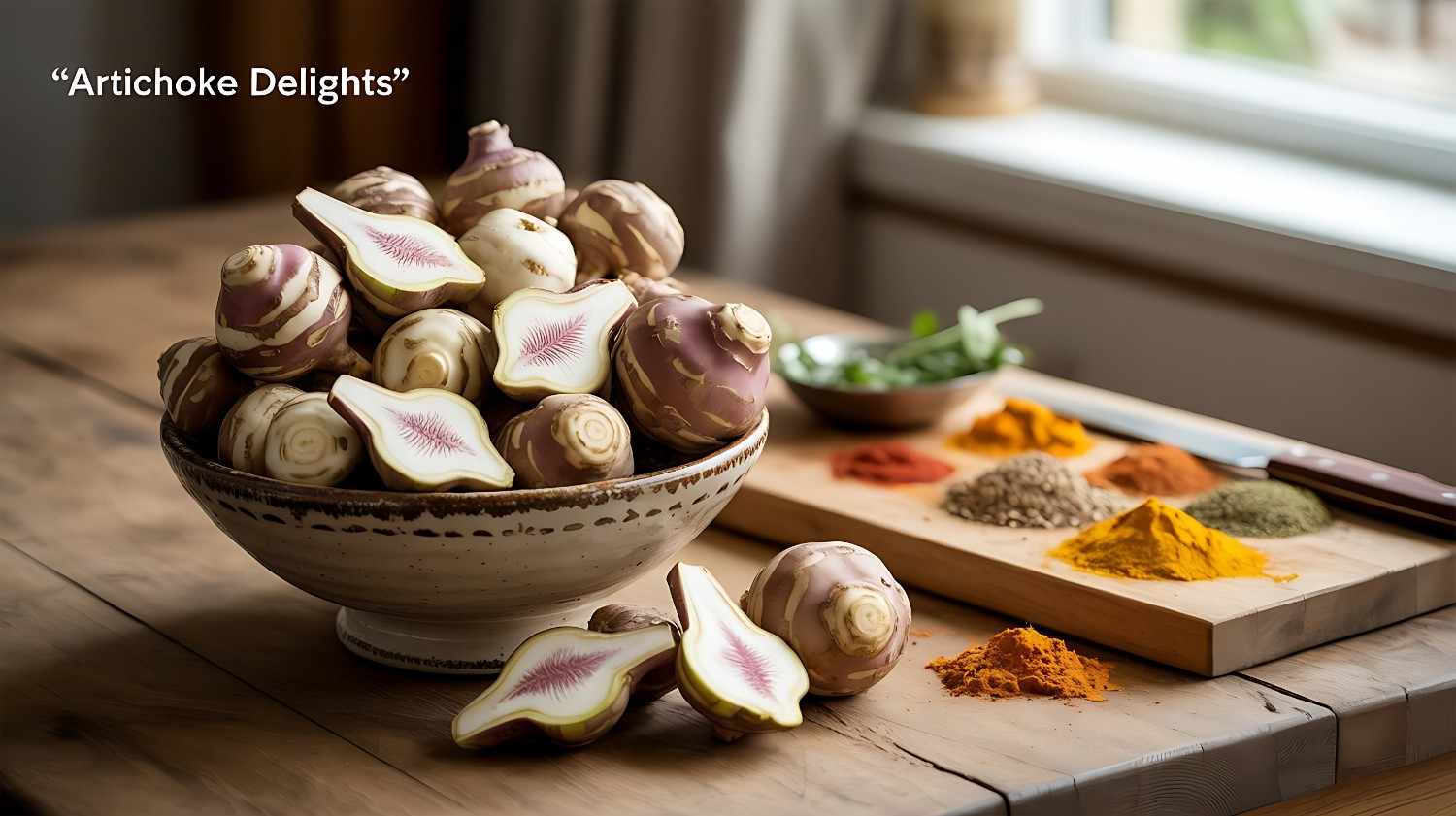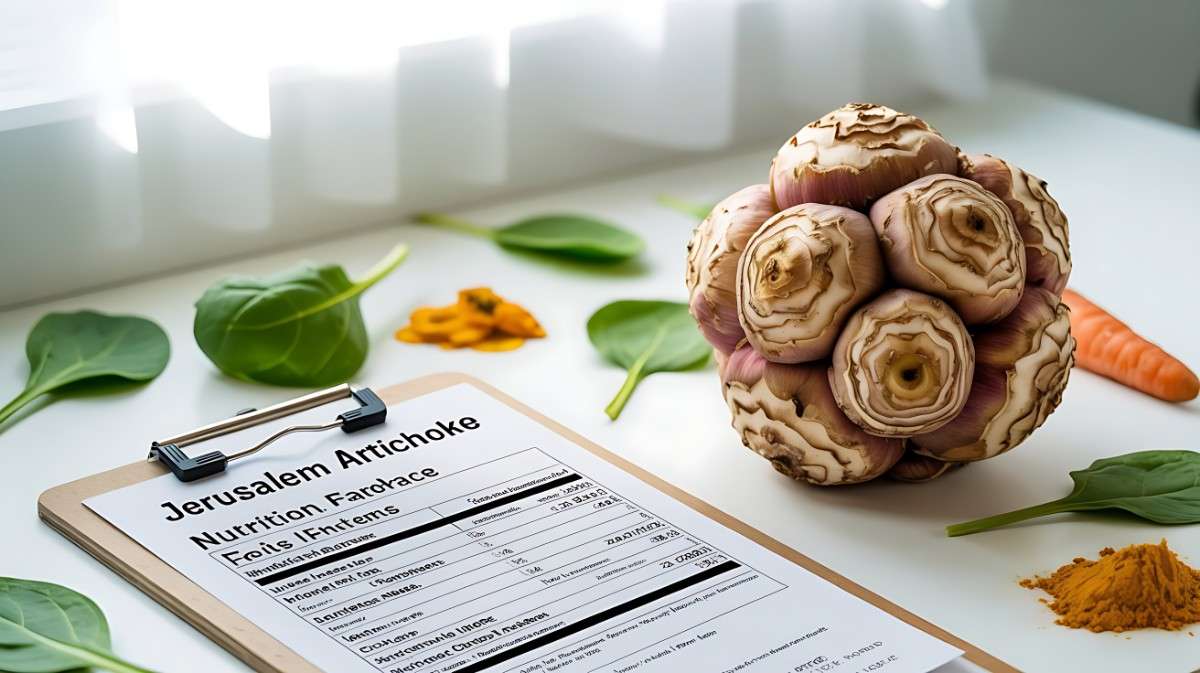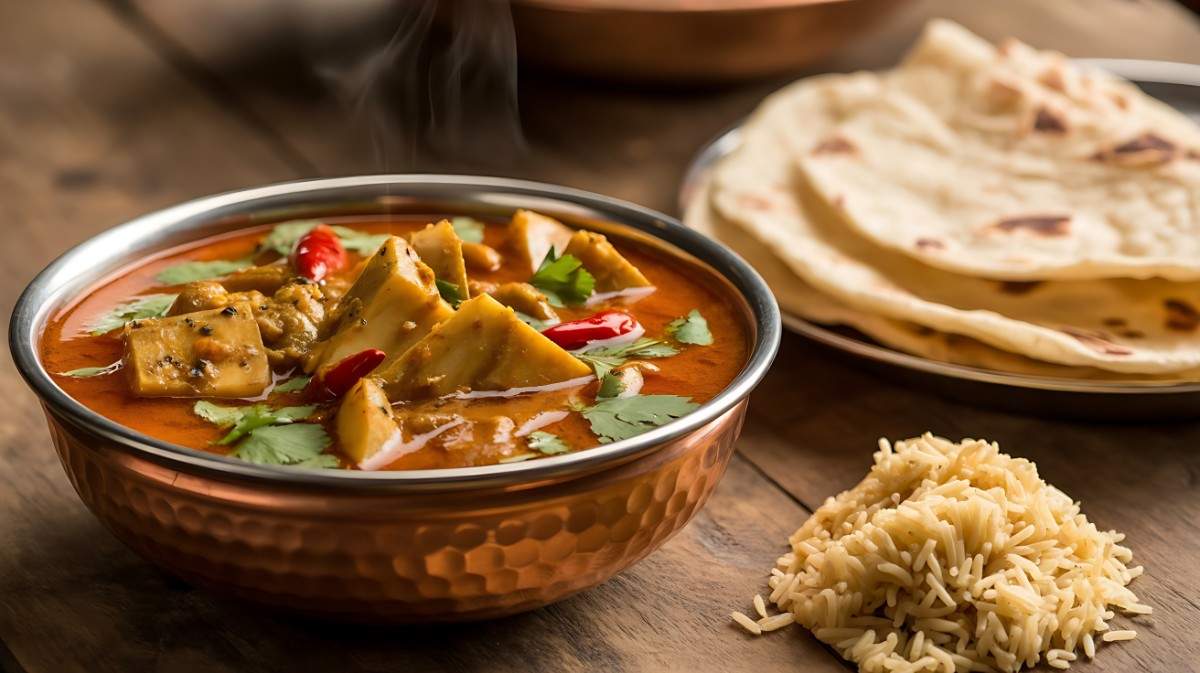Jerusalem Artichoke: Superfood Hidden Benefits You Didn't Know

Introduction
In the ever-evolving world of nutrition, superfoods come and go with trends. But there are a few hidden gems that stand the test of time, and Jerusalem Artichoke is one of them. Despite its misleading name, Jerusalem Artichoke isn’t related to artichokes or Jerusalem. This nutty, earthy-flavored tuber is loaded with unique health benefits that most people are unaware of. From being a powerhouse of prebiotics to supporting weight management and gut health, the Jerusalem Artichoke is truly nature’s gift waiting to be rediscovered.
In this comprehensive blog, we will uncover the lesser-known benefits of Jerusalem Artichoke, explore its nutritional secrets, and explain how to incorporate it into your Indian kitchen.
🌟 Want more fat-burning foods? Check out our popular blog on mango for weight loss.
What is Jerusalem Artichoke?

Also known as sunchoke, Jerusalem Artichoke is a type of tuber from the sunflower family (Helianthus tuberosus). It has a knobby, ginger-like appearance and offers a mildly sweet, nutty flavor, especially when roasted or sautéed. Native to North America, this underground root vegetable has been part of indigenous diets for centuries.
Contrary to its name, it has no relation to Jerusalem and is not a traditional artichoke. The name is believed to have evolved from the Italian word for sunflower, girasole, which was mispronounced as “Jerusalem.”
How Is It Different From Regular Potatoes & Other Tubers?
At first glance, Jerusalem Artichoke may resemble a potato, but nutritionally and functionally, it is quite different:
Lower Glycemic Index – It doesn’t spike blood sugar like potatoes do.
High in Inulin, Not Starch – This prebiotic fiber supports digestion and gut flora.
Fewer Calories & Carbs – Ideal for weight-conscious diets.
Crisp & Nutty – Raw it’s crunchy, cooked it’s creamy—unlike the dense texture of potatoes.
Nutritional Secret of Jerusalem Artichoke

What makes Jerusalem Artichoke so powerful? Its high inulin content—a soluble fiber that fuels beneficial gut bacteria, improves immunity, and regulates blood sugar. It’s also a good source of potassium, iron, vitamin C, copper, and B vitamins.
Nutritional Value (per 100g)
| Nutrient | Amount |
|---|---|
| Calories | 73 kcal |
| Carbohydrates | 17.4 g |
| Inulin (fiber) | 8–10 g |
| Protein | 2 g |
| Fat | 0.01 g |
| Potassium | 429 mg |
| Iron | 3.4 mg |
| Vitamin C | 4 mg |
| Magnesium | 17 mg |
| Phosphorus | 78 mg |
10 Health Benefits of Jerusalem Artichoke
Promotes Gut Health
Rich in inulin, Jerusalem Artichoke feeds your good gut bacteria. It helps balance your digestive system, reduce bloating, and enhance nutrient absorption. A happy gut means a healthier body and even a better mood.Controls Blood Sugar Levels
Ideal for diabetics, it has a low glycemic index. Inulin slows sugar absorption, avoiding the dangerous sugar spikes seen with starchy foods like potatoes or rice.Boosts Immunity
A healthy gut is your first line of defense. Combined with vitamin C and antioxidants, this tuber helps your body fight infections naturally.Aids in Weight Loss
With low calories and high fiber, it keeps you full longer. Less snacking = fewer calories. It also supports metabolism, making it a natural weight loss ally.Improves Heart Health
Potassium helps manage blood pressure, while fiber lowers LDL cholesterol. It supports heart function, reducing your risk of stroke and heart attacks.Rich in Iron for Energy & Blood Health
Iron supports red blood cell formation and oxygen transport. It helps reduce fatigue and improve energy, especially for vegetarians or women with iron deficiency.Supports Brain Function
Inulin indirectly boosts brain health by maintaining a healthy gut-brain axis. Iron and B vitamins also support better focus, memory, and reduced brain fog.Promotes Glowing Skin
Copper and vitamin C help with collagen production and skin regeneration. Regular consumption may lead to healthier, clearer skin.Improves Nutrient Absorption
A healthy gut boosts absorption of key nutrients like calcium, magnesium, and zinc—essential for immunity, muscle recovery, and bone health.Acts as a Natural Detoxifier
Jerusalem Artichoke supports smoother bowel movements, reducing constipation and flushing toxins from your digestive system.
How to Use Jerusalem Artichoke in Indian Cooking

Jerusalem Artichoke may be uncommon in India, but it fits beautifully into our flavors. Try these:
Aloo-Style Curry – Use it instead of potato in spicy sabzi.
Masala Tawa Fry – Thin-sliced and crisped on a pan with Indian spices.
Stuffed Paratha – Boiled, mashed, and mixed with coriander, chili, and jeera.
Sunchoke Pakoras – Sliced, dipped in besan batter, deep-fried till golden.
Masala Roasted Chaat – Baked, chopped, and mixed with chaat masala, onions, and lemon.
Precautions While Eating Jerusalem Artichoke

Gas & Bloating – Inulin may cause gas in some people. Start small.
Avoid Raw if Sensitive – Cooking makes it gentler on the stomach.
Possible Allergies – Uncommon but start with a small portion.
How to Safely Consume Jerusalem Artichoke
Start with 50–70g per day, cooked well.
Combine with gut-friendly herbs like ajwain, ginger, or asafoetida.
Don’t eat it daily initially—2–3 times per week is safe for most.
Store properly (see FAQ) to maintain freshness and avoid spoilage.
Final Thoughts
The Jerusalem Artichoke is more than just an exotic root—it’s a superfood hiding in plain sight. From gut health to blood sugar control, weight loss to glowing skin, its benefits are undeniable.
If you’re someone aiming for long-term sustainable health through real foods, this tuber deserves a spot on your plate.
🎯 Ready to take your diet to the next level? Explore our personalized 1-on-1 weight loss diet consultation program for a plan tailored to your body, lifestyle, and goals.
Disclaimer
This blog is for informational purposes only and does not substitute for professional medical advice, diagnosis, or treatment. Always consult your doctor or a registered dietitian before making changes to your diet, especially if you have medical conditions or allergies.
📲 Stay Connected
For daily health tips, diet hacks, and Indian-style weight loss recipes, follow me:
Instagram: @fitwithmohit.ig
YouTube: Fit with Mohit
